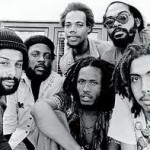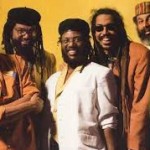Chairman of the Jamaica Reggae Industry Association (JaRIA), Ibo Cooper, recently told THE STAR that the music industry is lacking in new talent.
According to the former Third World band member, the youth must be allowed to add their own flavor to the music industry without being judged by purists and blocked by self-proclaimed gatekeepers. He also stated that local radio should put more focus on local music.
“Our radio stations here will play more hip hop than dancehall and reggae, and that’s their preference. You can’t force down a thing on people, but we need to have a recognition of creativity and development because we are having a shortage of new artists,” he said.

Freedom to create
The youth are often blamed for the poor international reception to locally produced dancehall and reggae music, with music purists claiming that the sound has changed. However, Ibo Cooper believes the youth should be allowed the freedom to create music as they see fit.
“We don’t mean putting the older people aside, but we can’t be planting the same thing and reaping the same thing. We must not be afraid of change. When ska became rocksteady and when rocksteady became reggae, we were changing. But after awhile, we started to say it must go this way, and people must know tradition should not be stagnant,” he said.

Record producer Stephen McGregor led a change in dancehall music in early 2000 with unique rhythms like the ‘Tremor’ and ‘Power Cut’. However, as the young producer grew in popularity many critics complained that the rhythms were not real dancehall rhythms. In the years that followed, McGregor released new rhythms, like the ‘Pepper’ rhythm that featured Shabba Ranks, which had a more authentic dancehall feel. Cooper believes Stephen should have stayed with his formula.
“Stephen shouldn’t have stopped. Anybody who has changed culture always gets some fight because the people hear it in the context of what they are listening to at the present time, but, in the future, it might be the biggest thing. People like Lee Scratch Perry and Niney never cared. Dem man deh were the cutting edge of change in the music and they took criticism too,” he said.

Formative years
Cooper also said the iconic Third World reggae band endured its fair share of criticism during its formative years. However, their work withstood the test of time and even influenced the direction of reggae music as it relates to cadence and sound.
“Some people come into the thing and want to be an authority in it and that is what keeps it back. Music is infinite, and what is coming next, I don’t know because its creativity. How yuh a guh create if yuh stuck? That was what made Third World different. Some man a purist and dem make the thing stagnant. When Third World came with Now That We Found Love they called us Hollywood Dread, but then Bunny Wailer came with Electric Boogie and then Peter Tosh came as well,” Cooper said.


You must log in to post a comment.